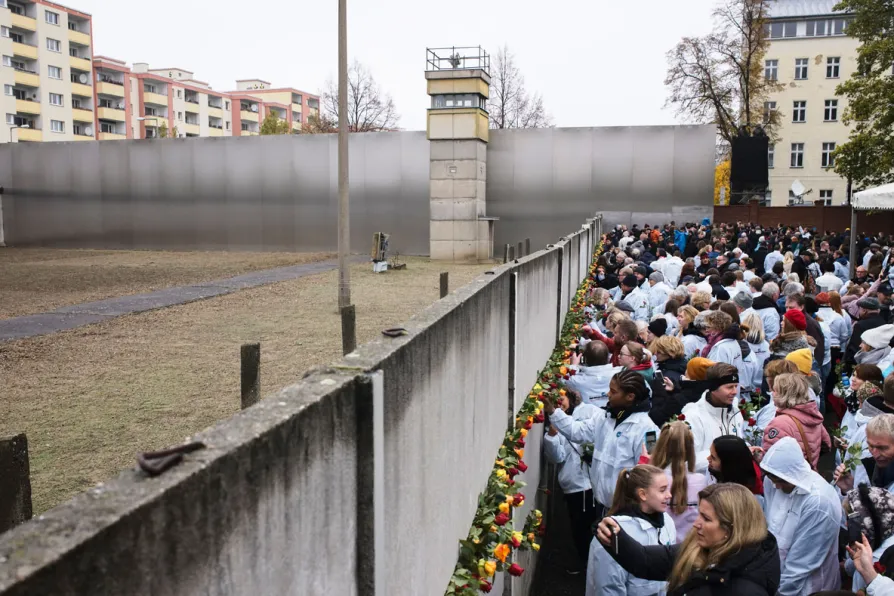As tens of thousands return to the streets for the first national Palestine march of 2026, this movement refuses to be sidelined or silenced, says PETER LEARY


WHEN thousands of people streamed through the Berlin Wall 30 years ago it seemed to signify the defeat of an ideal, the end of an ideology and a value system. The Berlin Wall — or as it was described in socialist Germany, the Anti-fascist Protection Barrier — marked the boundary between two totally opposed social systems.
1989 ended the first era in which full public ownership defined the economies of any European state. The demise of the first anti-fascist state on German soil — in the modern context of the wholesale dismantling of socialism on our continent — raises vital questions which the working-class movement has yet to tackle.
If by revolution we mean a complete change in the way in which society is organised then the events of 1989 were a complete counter-revolution.

NICK WRIGHT returns to Berlin and finds a city in darkness and political turmoil













